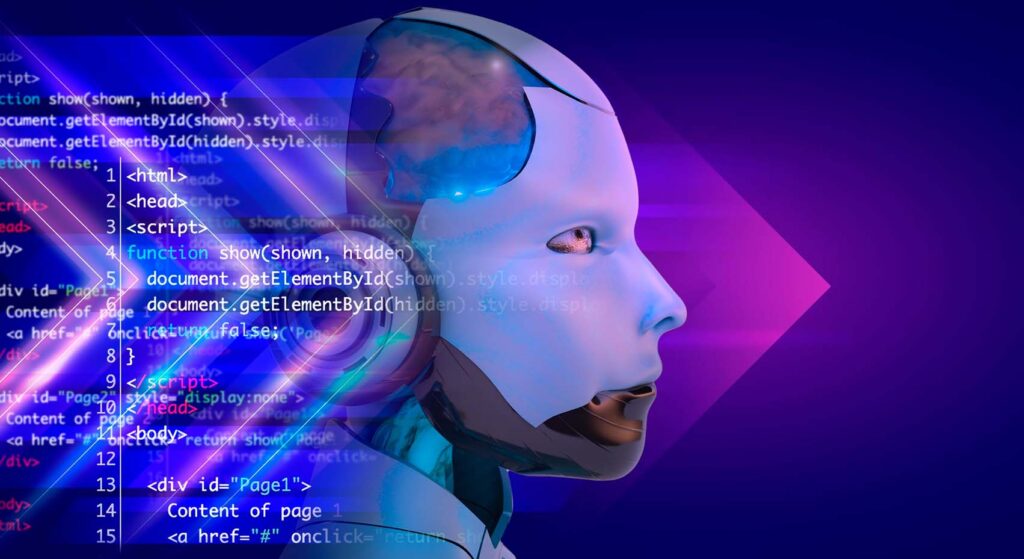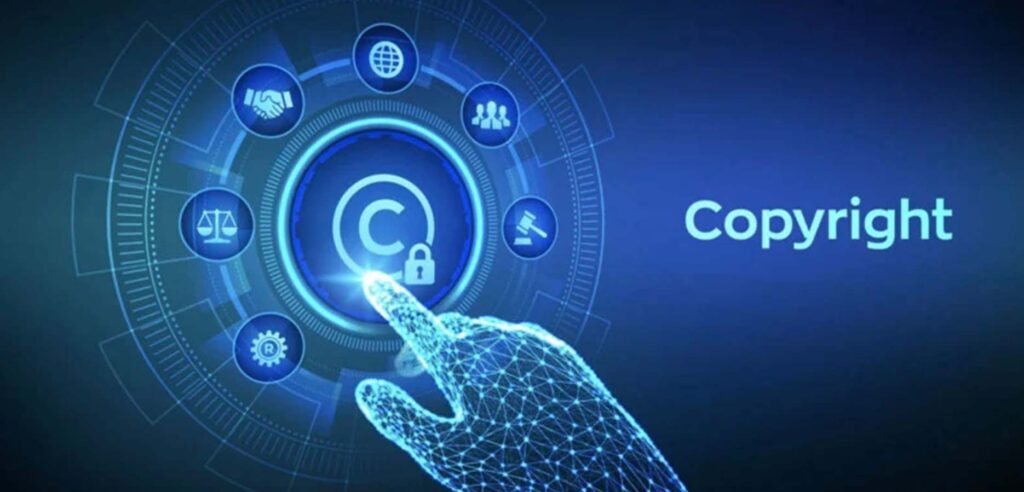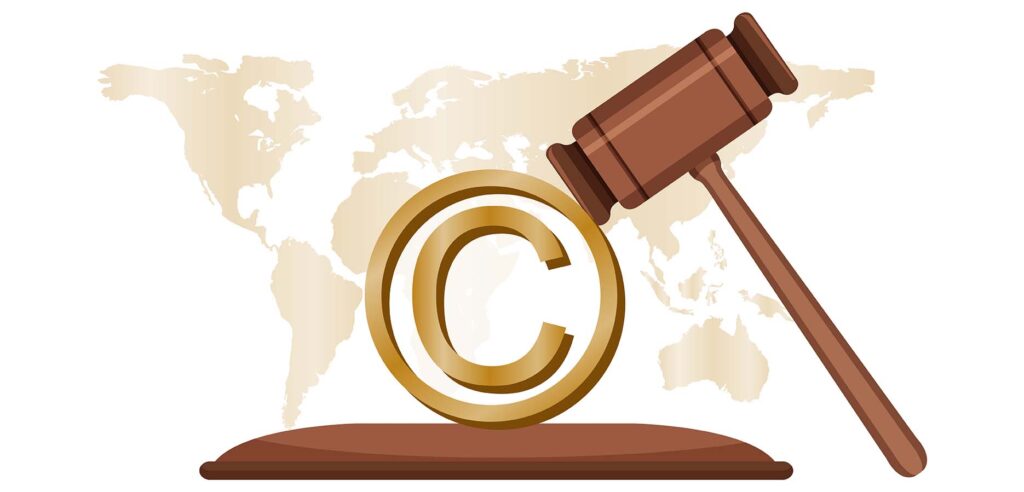In today’s digital age, artificial intelligence has become an essential tool for various industries, including content creation. With the rapid growth of AI-generated content, it’s essential to understand the legal aspects surrounding AI-generated content copyright. Who owns the rights to AI-generated content? What are the challenges that creators and users face, and what legal framework governs copyright ownership in the context of AI-generated content?
Introduction to AI-Generated Content

Artificial intelligence has revolutionized the way we create content. AI-generated content refers to any material created by an artificial intelligence program without human intervention or with minimal human involvement. This technology is rapidly gaining traction in various industries, including journalism, finance, and marketing.
AI-generated content is created using advanced algorithms that can analyse data, recognize patterns, and produce written or visual content autonomously. This technology can generate anything from news articles and social media posts to video advertisements and product descriptions.
The Advantages of AI-Generated Content
The use of AI-generated content has several benefits. Firstly, it saves time and resources for businesses. AI-generated content can produce high-quality material quickly and at a low cost. Secondly, AI-generated content can help improve the accuracy and consistency of content by removing the potential for human error and bias. Thirdly, it can produce content in several languages, increasing accessibility and reach.
Despite its benefits, AI-generated content also raises concerns about copyright ownership. Who owns the rights to content created by artificial intelligence? This question has led to an ongoing debate within the legal community, with no clear answers.
Copyright Basics
Copyright laws are used to protect artistic and literary works, including digital content, from unauthorized use. The copyright owner has the right to reproduce, distribute, perform, display, and create derivative works based on their original creation. Copyrights are granted automatically upon the creation of the work and last for a specific period, typically the life of the author plus 70 years.
Copyright infringement occurs when someone uses a copyrighted work without permission or outside fair use. Fair use is a legal doctrine that permits the use of copyrighted material under certain circumstances, such as for criticism, comment, news reporting, teaching, scholarship, or research.
In the context of AI-generated content, copyright ownership can become complicated due to the involvement of artificial intelligence. However, the basic principles of copyright law still apply, and it’s crucial to understand them to navigate the complexities of AI-generated content copyrights.
Challenges in AI-Generated Content Copyright
AI-generated content presents unique challenges when it comes to copyright ownership. With the involvement of artificial intelligence in content creation, it can be challenging to determine who owns the rights to the resulting work.
One of the major challenges is the legal complexity surrounding copyright ownership of AI-generated content. In most cases, copyright law is designed for human authors, and it can be challenging to apply these laws to works created by artificial intelligence. Additionally, determining whether AI-generated content constitutes original work is another challenge.
Another significant challenge is the lack of clarity in ownership when AI systems are involved in the creation process. In some cases, the AI system may itself be the creator of the content, raising questions about who should own the copyright. Alternatively, the human operator of the AI system may claim ownership, creating additional legal complexity.
Moreover, there may be challenges in defining the role of human input in copyright ownership. Even if a human operator is involved in the creation of AI-generated content, it can be challenging to determine the extent of their creative contribution and its impact on copyright ownership.
Finally, creating clear and enforceable contractual agreements for AI-generated content can also be a challenge. These agreements must consider the unique legal aspects of copyright ownership and the role of artificial intelligence in the content creation process.
Despite these challenges, stakeholders in the AI-generated content space are actively working to address them and establish clear copyright frameworks. As the use of artificial intelligence in content creation continues to grow, it is essential to navigate the legal complexities surrounding copyright ownership to ensure the protection of creators’ rights.
Legal Framework for AI-Generated Content Copyright

As AI-generated content continues to grow in importance, understanding the legal framework surrounding copyright ownership is crucial. While copyright law in the United States and other countries generally protects original creative works, many legal complexities remain when it comes to AI-generated content.
Currently, there is no specific legal framework governing copyright ownership of AI-generated content. However, existing copyright laws and regulations can provide guidance on determining ownership. For example, the U.S. Copyright Act defines copyright as the exclusive right of the creator to reproduce, distribute, and display their work. This means that if an AI-generated work satisfies the criteria for copyright protection, the creator may have a claim to the copyright.
Furthermore, the concept of “work for hire” can become relevant in determining copyright ownership of AI-generated content. In the U.S., a work for hire is a work created by an employee as part of their job responsibilities, with the copyright belonging to the employer. However, the application of this rule to AI-generated content can be complex, especially if the AI system involved was not designed by the employer.
As technology advances and AI-generated content becomes more prevalent, it’s likely that new laws and regulations will emerge to specifically address copyright ownership of AI-generated content. Until then, it’s important for creators and users of AI-generated content to be aware of the existing legal framework and seek legal guidance when necessary.
The Role of Human Input in Copyright Ownership
Despite the involvement of artificial intelligence in creating content, human input plays a crucial role in determining the copyright ownership. Courts have established that copyright protection is only granted to creative works that involve some level of human creativity, originality, and expression.
Therefore, in the context of AI-generated content copyrights, the human contribution is often a determining factor in establishing ownership. This is because while the algorithm can generate content, it lacks the ability to make creative choices and decisions that involve original ideas, judgments, and experiences.
For instance, if an AI system generates a news article, the ownership of the copyright may depend on whether the user has provided the AI with pre-existing news articles to utilize. If the user has only provided factual data and no pre-existing news articles, the user may have a stronger claim to the copyright ownership.
Furthermore, human input can also be significant in terms of editing, curating, and organizing the content generated by an AI system. These activities, which involve judgment, creativity, and selection, can establish the user as the rightful owner of the copyright.
In conclusion, while AI-generated content can be impressive and impactful, the involvement of human input is crucial in determining the copyright ownership. The human contribution is the key factor in establishing originality and creativity, which are essential elements of copyright protection.
Identifying the Rightful Owner of AI-Generated Content
Determining the rightful owner of AI-generated content can be complex due to the involvement of both AI systems and human input. The legal ownership of AI-generated content depends on various factors, including authorship, consent, and contractual agreements.
Authorship is a critical aspect when determining the rightful owner of AI-generated content. The author is often considered the creator or originator of the content and has the primary right to claim ownership. However, in cases where AI systems are involved, authorship can become less clear. AI systems can generate content without human intervention, leading to questions about who should be considered the author.
In some cases, AI-generated content may involve human input or supervision. For example, an author may use AI tools to generate content, but their creative input is significant in the final output. In such cases, the author may retain copyright ownership over the final work product.
Consent also plays a significant role in determining copyright ownership of AI-generated content. In situations where the content is generated by an AI system, the owner of the system may assert copyright ownership over the output. However, if the system is generating the content on behalf of a third party, the owner of the system may have to obtain consent from the third party before claiming ownership.
Finally, contractual agreements can also impact copyright ownership of AI-generated content. For instance, a company may have a contract with an author to generate content using AI tools. The agreement may specify the ownership of the content generated using those tools. Therefore, ensuring that clear contractual agreements are in place can help avoid disputes over copyright ownership.
Safeguarding Your AI-Generated Creative Outputs
As a creator of AI-generated content, it’s crucial to safeguard your creative outputs and ensure that your copyrights are protected. Here are some strategies and best practices to consider:
- Licensing: Consider licensing your AI-generated content to third parties, allowing them to use the content while maintaining your ownership rights. This can also generate additional income streams.
- Copyright Registration: Registering your copyright with the United States Copyright Office provides legal evidence of your ownership and can be helpful in legal disputes.
- Terms of Use: Clearly define the terms of use for your AI-generated content, including any limitations or restrictions. This can help protect your copyrights and prevent unauthorized usage.
- Security Measures: Implement security measures to prevent unauthorized access to your AI-generated content. This can include password protection and data encryption.
By implementing these strategies and best practices, you can safeguard your AI-generated creative outputs and protect your copyright ownership. It’s important to stay informed about the evolving legal landscape of AI-generated content copyrights and to adjust your strategies accordingly.
International Perspectives on AI-Generated Content Copyright

AI-generated content copyrights are influenced by different legal frameworks globally. It’s essential to understand the international perspectives on copyright ownership in AI-generated content. While there are similarities, several differences may impact creators and users of AI-generated content.
Europe
In Europe, copyright law recognizes the importance of human creativity in generating content. The European Union Intellectual Property Office (EUIPO) acknowledges that AI-generated content lacks human creativity and cannot be classified as a “work.” Therefore, AI-generated content does not qualify for copyright protection under EU laws, unless there is human input or intervention.
United States
The United States recognizes AI-generated work as copyrightable, but determining ownership can be challenging. The Copyright Office notes that copyright ownership of AI-generated work will depend on several factors, including the level of human input, the purpose of the AI, and the contractual agreements involved.
China
China’s copyright law is heavily influenced by its cultural and legal traditions. The Chinese Copyright Law recognizes AI-generated work as copyrightable but lacks specific provisions on AI-generated content. The current law recognizes the copyright ownership of AI-generated work as the “producer” of the AI system, which can include the developers and users of the system.
India
In India, copyright law does not have specific provisions for AI-generated work. However, the Copyright Act recognizes the “author” as the first owner of copyright in any work. In AI-generated work, the author would be the person who creates, selects, and feeds the algorithms and data that generate the content.
Understanding the international perspectives on AI-generated content copyrights can help creators and users navigate the complex legal landscape. As advances in technology continue to shape the future of AI-generated content, it’s crucial to consider global perspectives in developing comprehensive copyright policies.
Potential Future Developments in AI-Generated Content Copyright
The world of AI-generated content copyrights is constantly evolving, and future developments are expected to play a significant role in the legal landscape. Here are a few potential trends to watch out for:
- Increased use of AI in creative industries: As AI technology becomes more advanced, it is likely to play a more significant role in creative industries such as music, film, and literature. This could lead to more complex ownership disputes and legal challenges.
- Legal framework updates: Legislators and policymakers may need to update existing copyright laws and regulations to account for AI-generated content. This could involve changes to the definitions of authorship and ownership and may impact the legal protections afforded to AI-generated works.
- AI-generated content marketplaces: As demand for AI-generated content rises, we could see the emergence of dedicated marketplaces for such content, similar to existing stock photo and video websites. This could require new licensing and ownership models to ensure creators and users are protected.
- Increased use of blockchain technology: Blockchain technology has the potential to provide secure and transparent ownership records for AI-generated content, which could help to prevent ownership disputes and protect creators’ rights.
While it’s impossible to predict exactly how AI-generated content copyrights will evolve, staying up-to-date with these potential trends is vital for creators and users alike.
Conclusion
In conclusion, AI-generated content is becoming increasingly prevalent, and as such, the issue of copyright ownership has arisen. It is essential for creators, users, and legal professionals to understand the legal complexities and challenges involved in determining who owns the rights to AI-generated content. While AI systems play a significant role in generating content, human input remains crucial in deciding copyright ownership. The legal framework governing AI-generated content copyrights is still evolving, with various factors such as authorship, consent, and contractual agreements playing a significant role in determining rightful ownership. Creators of AI-generated content must safeguard their creative outputs by using strategies such as licensing and copyright registration. Additionally, international perspectives on AI-generated content copyrights vary, with different legal frameworks existing globally. As technology evolves, AI-generated content copyrights will continue to develop with emerging trends and future developments. Keeping abreast of these changes will ensure the protection of AI-generated creative outputs and the rightful ownership of content. In summary, understanding AI-generated content copyrights is essential in protecting creative outputs and ensuring that the appropriate parties own the rights. As AI-generated content becomes more prevalent, it is crucial to navigate the legal landscape and remain informed on future developments.
FAQ
Who owns the rights to AI-generated content?
The ownership of AI-generated content rights can vary depending on the circumstances. In most cases, copyright law recognizes the creator as the initial owner of the content. However, if the AI system was directly involved in creating the content without substantial human input, the question of ownership becomes more complex. It is advisable to consult a legal professional to determine the specific rights and ownership in your situation.
What is AI-generated content?
AI-generated content refers to creative works that have been generated or created using artificial intelligence technology. This can include various forms of content such as written articles, music, artwork, and even videos. AI algorithms analyse data, learn patterns, and generate content based on the input and parameters provided.
What are the challenges in AI-generated content copyright?
AI-generated content copyrights present several challenges due to the involvement of algorithms and machine learning. Determining the extent of human input, identifying the rightful owner, and understanding the legal implications can be complex. Additionally, existing copyright laws may not fully address the unique aspects of AI-generated content, resulting in legal uncertainties and disputes.
How can I safeguard my AI-generated creative outputs?
Safeguarding your AI-generated creative outputs involves taking proactive steps to protect your copyrights. This can include registering your copyrights with the appropriate authorities, using watermarking or digital rights management techniques, and implementing licensing agreements to control how your content is used. Consulting with intellectual property lawyers or experts can help you navigate the specific strategies and best practices for safeguarding your AI-generated content.
Are there international differences in AI-generated content copyright?
Yes, copyright laws and regulations surrounding AI-generated content can differ from country to country. Some countries may have specific provisions that address copyright ownership in relation to AI technology, while others may rely on existing copyright laws to interpret ownership. It is important to understand the legal frameworks and seek expert guidance to ensure compliance and protection of your AI-generated content copyrights.
What are potential future developments in AI-generated content copyright?
The field of AI-generated content is constantly evolving, and future developments are expected to impact copyright ownership. As AI technology advances, there may be the need for new legislation or amendments to existing laws to address the unique challenges and opportunities created by AI-generated content. It is crucial to stay informed about emerging trends and legal developments to adapt and protect your AI-generated content copyrights effectively.
- Introduction to AI-Generated Content
- Challenges in AI-Generated Content Copyright
- Legal Framework for AI-Generated Content Copyright
- The Role of Human Input in Copyright Ownership
- Identifying the Rightful Owner of AI-Generated Content
- Safeguarding Your AI-Generated Creative Outputs
- International Perspectives on AI-Generated Content Copyright
- Potential Future Developments in AI-Generated Content Copyright
- Conclusion
- FAQ

Who Owns the Rights? Understanding AI-Generated Content Copyright